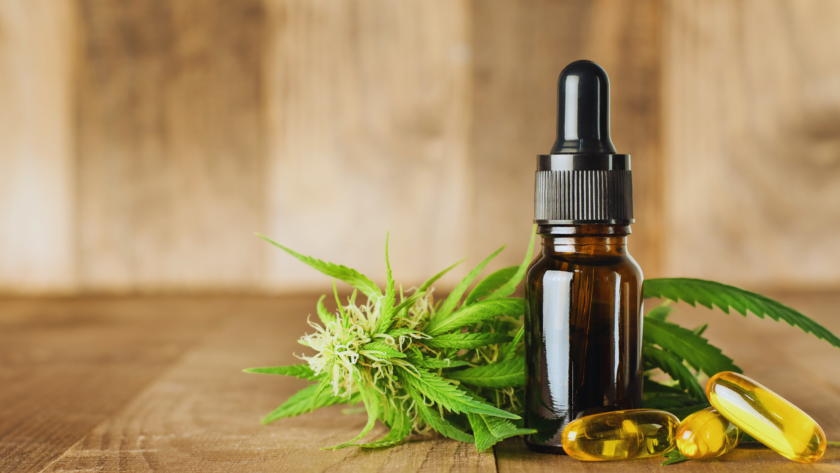The conversation around cannabis often revolves around two primary compounds: CBD and THC. Each offers distinct effects, appealing to different needs and preferences. Understanding the benefits of CBD and THC can help individuals make informed choices based on their health goals.
CBD, or cannabidiol, is favored for its potential therapeutic properties without the high associated with THC. Many seek out CBD for its ability to alleviate anxiety, reduce inflammation, and provide relief from certain medical conditions. On the other hand, THC, or tetrahydrocannabinol, is known for its psychoactive effects and pain-relieving properties, often attracting users looking for recreational experiences or symptom relief.
The contrast between these compounds highlights their unique advantages. CBD is often preferred for its non-intoxicating effects, while THC may be favored for its ability to produce a euphoric high and address more acute issues. Understanding these differences can guide individuals in selecting the right product for their personal needs.
Understanding Cannabinoids: CBD and THC
Cannabinoids are chemical compounds found in the cannabis plant, including cannabidiol (CBD) and tetrahydrocannabinol (THC). These two cannabinoids interact differently with the body’s endocannabinoid system, leading to distinct effects and benefits.
Chemical Structure and Effects
CBD and THC have a similar chemical structure, both consisting of 21 carbon atoms, 30 hydrogen atoms, and 2 oxygen atoms. Despite this similarity, their effects on the body differ significantly.
THC is the psychoactive component that produces a “high” sensation by binding directly to CB1 receptors in the brain. This interaction can lead to euphoria, altered sensory perception, and an increase in appetite. In contrast, CBD does not bind to these receptors in the same way and is non-psychoactive. Instead, it may promote relaxation, reduce anxiety, and alleviate pain without producing a high.
CBD vs THC in the Cannabis Plant
In cannabis, CBD and THC are typically found in varying concentrations depending on the strain. For example, some strains are bred specifically for high CBD content, making them more suitable for therapeutic use without psychoactive effects.
On the other hand, recreational cannabis strains usually emphasize THC levels, catering to users seeking psychoactive experiences. Other cannabinoids, such as cannabinol (CBN), also play roles but in lesser quantities. Understanding the balance of these cannabinoids helps consumers choose products that align with their needs—whether for wellness or recreational purposes.
Therapeutic Effects of CBD
CBD is gaining attention for its potential therapeutic effects in various health conditions. Its interactions with the endocannabinoid system make it a candidate for alleviating anxiety, controlling inflammation, and addressing epilepsy.
Alleviating Anxiety and Stress
Research indicates that CBD may effectively reduce anxiety and stress levels. Studies suggest that it interacts with serotonin receptors in the brain, which play a crucial role in mood regulation.
Many individuals report decreased feelings of anxiety after using CBD products. A common method involves taking CBD oil, tinctures, or capsules. Doses can vary based on individual needs, but starting low is often recommended to assess tolerance.
Clinical findings show promise, with a significant number of patients reporting relief from generalized anxiety disorder and social anxiety disorder.
Controlling Inflammation and Pain
CBD has demonstrated anti-inflammatory properties, making it beneficial for those suffering from chronic pain. It may inhibit inflammatory responses by interacting with immune cells.
People with conditions like arthritis and multiple sclerosis often seek CBD as a natural alternative to traditional pain management methods. Creams, oils, and edibles are typical delivery methods for those looking to manage pain.
Studies suggest that CBD’s ability to modulate pain signals may effectively reduce discomfort.
Effects on Epilepsy and Seizures
Significant research supports CBD’s efficacy in reducing seizure frequency, particularly in epilepsy cases resistant to treatment. Epidiolex, a CBD-based medication, received FDA approval for treating specific types of epilepsy.
Clinical trials have shown that CBD can lead to a meaningful reduction in seizures. Furthermore, its side effects are often less severe compared to conventional antiepileptic drugs.
Patients and caregivers report a notable improvement in quality of life, with some experiencing a decrease in the severity and frequency of seizures.
Potential Risks and Side Effects
Both CBD and THC can present risks and side effects, each with distinct implications for users. Understanding these factors is essential for making informed choices.
Psychoactive Effects and Addiction
THC is known for its psychoactive properties, which can result in altered perceptions and mood changes. These effects may lead to anxiety, paranoia, or a feeling of euphoria, but they vary greatly among individuals.
It’s important to note that THC has the potential for addiction. Research indicates that about 9% of users develop problematic use. In contrast, CBD is non-psychoactive and is not associated with addiction. This makes it a safer option for many who wish to avoid the mind-altering effects of THC while still obtaining some therapeutic benefits.
Common Physical Side Effects
Users of THC may experience several common physical side effects. Dry mouth is a frequent complaint, often referred to as “cottonmouth.” This can be uncomfortable and may require increased hydration.
Dizziness and fatigue are also reported, particularly in inexperienced users or those consuming high doses. In some cases, these effects can impair daily activities. Comparing this to CBD, users may experience fewer side effects, which can include mild fatigue but generally not as pronounced as those associated with THC.
CBD Products and Usage
CBD products come in various forms, catering to different preferences and needs. Understanding the types of extracts and considerations for medical use is crucial for anyone looking to incorporate CBD into their routine.
Types of CBD Extracts
CBD extracts primarily fall into three categories: full-spectrum, broad-spectrum, and CBD isolate.
- Full-spectrum: Contains all cannabinoids and compounds found in the hemp plant, including trace amounts of THC. This may enhance the therapeutic effects due to the entourage effect.
- Broad-spectrum: Similar to full-spectrum but without THC. It includes various cannabinoids and terpenes, offering benefits without psychoactive effects.
- CBD isolate: 99% pure CBD in powder form, suitable for those wanting to avoid any other compounds.
These extracts can be found in products like oils, tinctures, capsules, and topical applications.
Considerations for Medical Cannabis
Individuals considering CBD for medical purposes should consult with healthcare professionals. Key factors include:
- Dosage: Finding the appropriate dose can vary widely between users, based on body weight and condition.
- Quality: Selecting high-quality products from reputable suppliers ensures safety and effectiveness. This includes checking for third-party lab testing.
- Legislation: Understanding the legal status of CBD and medical cannabis in their region is essential, as regulations vary.
By keeping these considerations in mind, users can make more informed choices regarding CBD for therapeutic use.




